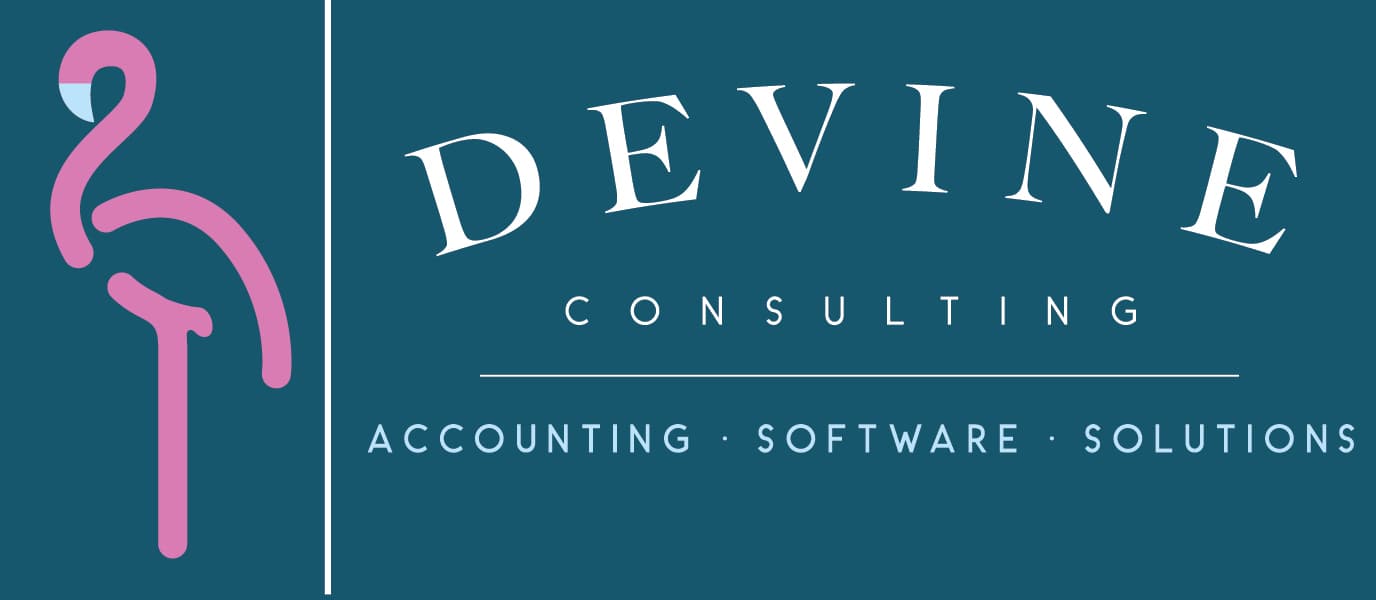Blog
Read about the latest accounting trends and best practices in our blog.
 https://devineconsultingllc.com/wp-content/uploads/2024/04/How-to-Manage-Your-Small-Business-Accounting-Tasks-team.jpg
1250
2000
Paul Cook
https://devineconsultingllc.com/wp-content/uploads/2024/04/top-website-logo-011.jpg
Paul Cook2024-04-15 16:37:422024-04-17 13:25:14How to Manage Your Small Business Accounting Tasks
https://devineconsultingllc.com/wp-content/uploads/2024/04/How-to-Manage-Your-Small-Business-Accounting-Tasks-team.jpg
1250
2000
Paul Cook
https://devineconsultingllc.com/wp-content/uploads/2024/04/top-website-logo-011.jpg
Paul Cook2024-04-15 16:37:422024-04-17 13:25:14How to Manage Your Small Business Accounting Tasks https://devineconsultingllc.com/wp-content/uploads/2024/04/The-Role-of-Accounting-Firms-in-1099-Outsourcing-Services-team.jpg
1250
2000
Paul Cook
https://devineconsultingllc.com/wp-content/uploads/2024/04/top-website-logo-011.jpg
Paul Cook2024-04-15 16:37:422024-04-18 10:56:49The Role of Accounting Firms in 1099 Outsourcing Services
https://devineconsultingllc.com/wp-content/uploads/2024/04/The-Role-of-Accounting-Firms-in-1099-Outsourcing-Services-team.jpg
1250
2000
Paul Cook
https://devineconsultingllc.com/wp-content/uploads/2024/04/top-website-logo-011.jpg
Paul Cook2024-04-15 16:37:422024-04-18 10:56:49The Role of Accounting Firms in 1099 Outsourcing Services https://devineconsultingllc.com/wp-content/uploads/2024/04/What-Is-Accrual-Accounting.jpg
1250
2000
Paul Cook
https://devineconsultingllc.com/wp-content/uploads/2024/04/top-website-logo-011.jpg
Paul Cook2024-04-15 16:37:422024-04-18 10:56:49What Is Accrual Accounting?
https://devineconsultingllc.com/wp-content/uploads/2024/04/What-Is-Accrual-Accounting.jpg
1250
2000
Paul Cook
https://devineconsultingllc.com/wp-content/uploads/2024/04/top-website-logo-011.jpg
Paul Cook2024-04-15 16:37:422024-04-18 10:56:49What Is Accrual Accounting? https://devineconsultingllc.com/wp-content/uploads/2024/04/The-Fundamentals-of-Construction-Project-Accounting.jpg
1250
2000
Paul Cook
https://devineconsultingllc.com/wp-content/uploads/2024/04/top-website-logo-011.jpg
Paul Cook2024-04-15 16:37:422024-04-18 10:56:50The Fundamentals of Construction Project Accounting
https://devineconsultingllc.com/wp-content/uploads/2024/04/The-Fundamentals-of-Construction-Project-Accounting.jpg
1250
2000
Paul Cook
https://devineconsultingllc.com/wp-content/uploads/2024/04/top-website-logo-011.jpg
Paul Cook2024-04-15 16:37:422024-04-18 10:56:50The Fundamentals of Construction Project Accounting https://devineconsultingllc.com/wp-content/uploads/2024/04/How-Outsourcing-Your-Bookkeeping-Services-Can-Add-Value-to-Your-Business.jpg
1250
2000
Paul Cook
https://devineconsultingllc.com/wp-content/uploads/2024/04/top-website-logo-011.jpg
Paul Cook2024-04-15 16:37:422024-04-18 10:56:50How Outsourcing Your Bookkeeping Services Can Add Value to Your Business
https://devineconsultingllc.com/wp-content/uploads/2024/04/How-Outsourcing-Your-Bookkeeping-Services-Can-Add-Value-to-Your-Business.jpg
1250
2000
Paul Cook
https://devineconsultingllc.com/wp-content/uploads/2024/04/top-website-logo-011.jpg
Paul Cook2024-04-15 16:37:422024-04-18 10:56:50How Outsourcing Your Bookkeeping Services Can Add Value to Your Business https://devineconsultingllc.com/wp-content/uploads/2024/04/CAS-Practices-FAQs.jpg
1250
2000
Paul Cook
https://devineconsultingllc.com/wp-content/uploads/2024/04/top-website-logo-011.jpg
Paul Cook2024-04-15 16:37:422024-04-18 10:56:50CAS Practices: FAQs
https://devineconsultingllc.com/wp-content/uploads/2024/04/CAS-Practices-FAQs.jpg
1250
2000
Paul Cook
https://devineconsultingllc.com/wp-content/uploads/2024/04/top-website-logo-011.jpg
Paul Cook2024-04-15 16:37:422024-04-18 10:56:50CAS Practices: FAQs https://devineconsultingllc.com/wp-content/uploads/2024/04/The-Importance-of-Accounting-for-Construction-Projects.jpg
1250
2000
Paul Cook
https://devineconsultingllc.com/wp-content/uploads/2024/04/top-website-logo-011.jpg
Paul Cook2024-04-15 16:37:422024-04-17 13:32:46The Importance of Accounting for Construction Projects
https://devineconsultingllc.com/wp-content/uploads/2024/04/The-Importance-of-Accounting-for-Construction-Projects.jpg
1250
2000
Paul Cook
https://devineconsultingllc.com/wp-content/uploads/2024/04/top-website-logo-011.jpg
Paul Cook2024-04-15 16:37:422024-04-17 13:32:46The Importance of Accounting for Construction Projects https://devineconsultingllc.com/wp-content/uploads/2024/04/What-Are-Client-Advisory-Services-CAS-worker.jpg
1250
2000
Paul Cook
https://devineconsultingllc.com/wp-content/uploads/2024/04/top-website-logo-011.jpg
Paul Cook2024-04-15 16:37:422024-04-17 17:03:32What Are Client Advisory Services (CAS)?
https://devineconsultingllc.com/wp-content/uploads/2024/04/What-Are-Client-Advisory-Services-CAS-worker.jpg
1250
2000
Paul Cook
https://devineconsultingllc.com/wp-content/uploads/2024/04/top-website-logo-011.jpg
Paul Cook2024-04-15 16:37:422024-04-17 17:03:32What Are Client Advisory Services (CAS)? https://devineconsultingllc.com/wp-content/uploads/2024/04/The-Pros-and-Cons-of-Accounting-Software.jpg
1250
2000
Paul Cook
https://devineconsultingllc.com/wp-content/uploads/2024/04/top-website-logo-011.jpg
Paul Cook2024-04-15 16:37:422024-04-17 16:52:15The Pros and Cons of Accounting Software
https://devineconsultingllc.com/wp-content/uploads/2024/04/The-Pros-and-Cons-of-Accounting-Software.jpg
1250
2000
Paul Cook
https://devineconsultingllc.com/wp-content/uploads/2024/04/top-website-logo-011.jpg
Paul Cook2024-04-15 16:37:422024-04-17 16:52:15The Pros and Cons of Accounting Software https://devineconsultingllc.com/wp-content/uploads/2024/04/When-to-Start-Your-Annual-Budgeting-Process.jpg
1250
2000
Paul Cook
https://devineconsultingllc.com/wp-content/uploads/2024/04/top-website-logo-011.jpg
Paul Cook2024-04-15 16:37:422024-04-17 16:53:04When to Start Your Annual Budgeting Process
https://devineconsultingllc.com/wp-content/uploads/2024/04/When-to-Start-Your-Annual-Budgeting-Process.jpg
1250
2000
Paul Cook
https://devineconsultingllc.com/wp-content/uploads/2024/04/top-website-logo-011.jpg
Paul Cook2024-04-15 16:37:422024-04-17 16:53:04When to Start Your Annual Budgeting Process https://devineconsultingllc.com/wp-content/uploads/2024/04/In-House-Accounting-vs.-Outsourcing-A-Breakdown.jpg
1250
2000
Paul Cook
https://devineconsultingllc.com/wp-content/uploads/2024/04/top-website-logo-011.jpg
Paul Cook2024-04-15 16:37:422024-04-17 16:53:45In-House Accounting vs. Outsourcing: A Breakdown
https://devineconsultingllc.com/wp-content/uploads/2024/04/In-House-Accounting-vs.-Outsourcing-A-Breakdown.jpg
1250
2000
Paul Cook
https://devineconsultingllc.com/wp-content/uploads/2024/04/top-website-logo-011.jpg
Paul Cook2024-04-15 16:37:422024-04-17 16:53:45In-House Accounting vs. Outsourcing: A Breakdown https://devineconsultingllc.com/wp-content/uploads/2024/04/Is-Payroll-Part-of-HR-or-Accounting.jpg
1250
2000
Paul Cook
https://devineconsultingllc.com/wp-content/uploads/2024/04/top-website-logo-011.jpg
Paul Cook2024-04-15 16:37:422024-04-17 16:54:31Is Payroll Part of HR or Accounting?
https://devineconsultingllc.com/wp-content/uploads/2024/04/Is-Payroll-Part-of-HR-or-Accounting.jpg
1250
2000
Paul Cook
https://devineconsultingllc.com/wp-content/uploads/2024/04/top-website-logo-011.jpg
Paul Cook2024-04-15 16:37:422024-04-17 16:54:31Is Payroll Part of HR or Accounting?
Devine Consulting offers comprehensive accounting solutions for clients across various industries.
This site uses cookies. By continuing to browse the site, you are agreeing to our use of cookies.
OKLearn moreWe may request cookies to be set on your device. We use cookies to let us know when you visit our websites, how you interact with us, to enrich your user experience, and to customize your relationship with our website.
Click on the different category headings to find out more. You can also change some of your preferences. Note that blocking some types of cookies may impact your experience on our websites and the services we are able to offer.
These cookies are strictly necessary to provide you with services available through our website and to use some of its features.
Because these cookies are strictly necessary to deliver the website, refusing them will have impact how our site functions. You always can block or delete cookies by changing your browser settings and force blocking all cookies on this website. But this will always prompt you to accept/refuse cookies when revisiting our site.
We fully respect if you want to refuse cookies but to avoid asking you again and again kindly allow us to store a cookie for that. You are free to opt out any time or opt in for other cookies to get a better experience. If you refuse cookies we will remove all set cookies in our domain.
We provide you with a list of stored cookies on your computer in our domain so you can check what we stored. Due to security reasons we are not able to show or modify cookies from other domains. You can check these in your browser security settings.
We also use different external services like Google Webfonts, Google Maps, and external Video providers. Since these providers may collect personal data like your IP address we allow you to block them here. Please be aware that this might heavily reduce the functionality and appearance of our site. Changes will take effect once you reload the page.
Google Webfont Settings:
Google Map Settings:
Google reCaptcha Settings:
Vimeo and Youtube video embeds:
